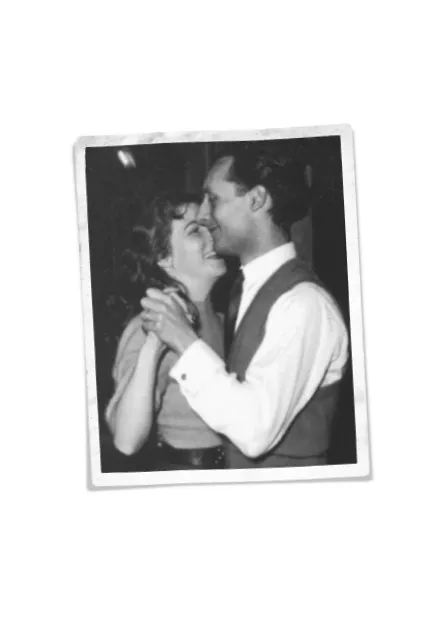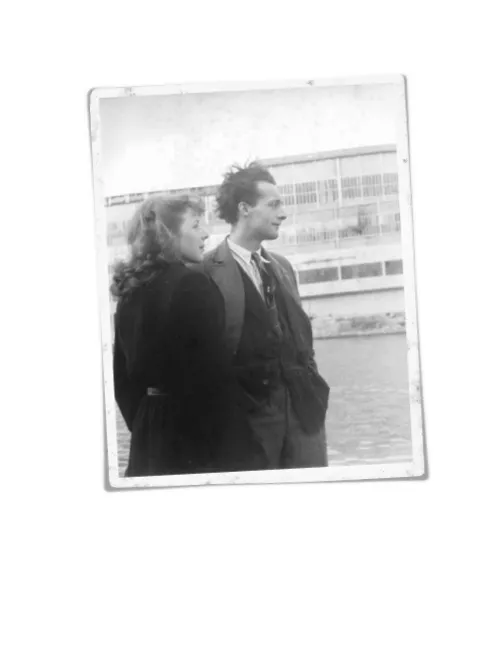![]()
![]()
You’re 82 years old. You’ve shrunk six centimetres, you only weigh 45 kilos yet you’re still beautiful, graceful and desirable. We’ve lived together now for 58 years and I love you more than ever. I once more feel a gnawing emptiness in the hollow of my chest that is only filled when your body is pressed next to mine.
I just need to tell you these simple things again before I deal with the issues that have been eating away at me for some time now. Why is there so little of you in what I’ve written when our union has been the most important thing in my life? Why did I give such a false image of you in The Traitor, an image that disfigures you? That book was supposed to show how my commitment to you was the decisive turning point that gave me the will to live. So why doesn’t the wonderful love affair we’d begun seven years earlier really come into it? Why don’t I say what fascinated me about you? Why did I present you as this pitiful creature ‘who didn’t know a soul, didn’t speak a word of French, would have destroyed herself without me’, when you had your circle of friends, were in a Lausanne theatre company and were eagerly awaited back in England by a man determined to marry you?
I didn’t really achieve the profound self-analysis I’d intended in writing The Traitor. I still need to understand, to clarify so many questions.
I need to piece together the story of our love to appreciate its full meaning. It’s what has allowed us to become who we are, living through each other and for each other. I’m writing to you now to understand what my life has been, what our life together has meant.
![]()
Our affair began miraculously, love at first sight, more or less. The day we met, you were surrounded by three men trying to show you how to play poker. You had masses of auburn hair and the peaches-and-cream skin and distinctive sweet voice English women often have. You’d only just stepped off the train from England, and all three men were vying for your attention in their very limited English. You were striking, witty and clever, beautiful as a dream. When our eyes met, I thought: ‘I don’t stand a chance with her’. I found out later that our host had warned you off me: ‘He is an Austrian Jew. Totally devoid of interest’.
A month later I passed you in the street and watched you go by, fascinated by the way you walked – like a dancer. Then one evening, as luck would have it, I looked down a side street and caught sight of you in the distance. I turned and ran to catch up. You were walking fast. It had snowed and the drizzle had made your hair go curly. Without thinking I ’d get anywhere, I suggested we go dancing. You just said, Oui, why not. That was October 23, 1947.
My English was clumsy but passable. It had been improved by two American novels I ’d just translated for the publishers, Marguerat. That first time we went out, I gathered you’d read a lot, during and after the war: Virginia Woolf, George Eliot, Tolstoy, Plato …
We talked about British politics, the different currents at the heart of the Labour Party. You were able to tell the difference between what mattered and what didn’t in a flash. Faced with a complex problem, you always knew exactly what decision to make. You had unshakeable confidence in the rightness of your judgment. Where did you get your assurance? You, too, had had parents who’d separated. You had left them at an early age, one after the other, and had lived alone those last years of the war, sharing your rations with your cat, Tabby. Finally, you’d left your native land behind to go and explore other worlds. How could an ‘Austrian Jew’, without a sou to his name, interest you?
I didn’t understand. I didn’t know what invisible bonds were being woven between us. You didn’t like talking about your past. It was only slowly that I came to understand what kind of formative experience made us so close from the start.
We saw each other again. We went dancing again. We saw Le Diable au corps, with Gérard Philippe, together. There’s a scene in the film where the heroine asks the sommelier to exchange a bottle of wine they’ve started drinking because, she says, they can taste the cork. We tried the same trick in a dance hall one night, but when the sommelier checked, he challenged our claim. We insisted and he relented, but not without warning us: ‘Never set foot here again!’
I had to admire your sangfroid and sheer cheek. I said to myself: ‘We’re meant to be.’
At the end of our third or fourth date, I finally kissed you.
![]()
We were in no hurry. I took your clothes off and bared your body slowly, with great care. I discovered just how magically reality can coincide with the imaginary. You were a miracle, Venus de Milo made flesh. The luminous sheen of your throat cast a glow over your face. I gazed on this miracle of strength and softness for a long while, lost for words. With you, I understood that pleasure is not something you give or take. It’s a way of giving yourself and calling forth the gift of self from the other person. We gave ourselves to each other completely.
In the weeks that followed, we saw each other virtually every night. You shared the old battered sofa that I used as a bed. Since it was only 60 centimetres wide, we had to snuggle up tightly together. Apart from the sofa, the only other things in my room were a bookshelf made out of boards and bricks, a huge table cluttered with papers, a chair and an electric heater. You weren’t surprised by my monk-like existence. I wasn’t surprised you accepted it.
Before I knew you, I ’d never spent more than two hours with a girl without getting bored and letting her know it. What captivated me about you was that you opened the door to another world for me. The values that dominated my childhood had no place there. That world enchanted me. I could leave the real world behind and be someone else, without any ties or obligations. With you, I was elsewhere, in a foreign place, foreign to myself. You gave me access to another dimension when I ’d always rejected any fixed identity and just worn different identities on top of each other, though none of them were mine.
By speaking to you in English, I made your language mine. I’ve continued to talk to you in English right up to this day, even when you answer me in French. For me, English, which I knew mainly through you and through books, was from the start like a private language that preserved our intimacy against the intrusion of the real world, and its prevailing social norms. I felt like I was building a protected and protective world with you.
We could never have come together like this if you’d had a strong sense of belonging, of having roots deep in British culture. But you didn’t. When it came to anything British, you kept a critical distance, though that didn’t stop you feeling deeply connected to what was familiar to you from childhood. I used to say you were an ‘export only’, one of those products reserved for export that you can never find in Great Britain itself.
We both became passionate about the outcome of the elections in Great Britain, but that was because what was at stake there was the future of socialism, not of the United Kingdom.
The worst insult anyone could direct at you was to accuse you of taking Britain’s side on anything out of a sense of patriotism. I ’d have proof of this much later, during the invasion of the Falklands by Argentine forces. An illustrious visitor at the time tried to claim you were taking Britain’s side out of patriotism. You retorted tartly that only a moron could fail to see what Argentina was up to. You said it was obviously conducting the war in a bid to restore the fortunes of the militaro-fascist dictatorship and that the victory of the British would finally bring about its collapse.
But I’m getting ahead of myself. In those first weeks, I was delighted by your free and easy attitude towards your culture of origin but also by the substance of that culture as it had been passed on to you when you were little: a certain way of making light of the gravest ordeals, a sense of humility camouflaged as self-deprecating humour and most especially your nursery rhymes, fiercely nonsensical and cleverly rhymed as they are. For instance: ‘Three blind mice/See how they run/They all run after the farmer’s wife/Who cut off their tails with a carving knife/Did you ever see such fun in your life/As three blind mice?’
I wanted you to tell me about your childhood down to the very last detail. I knew you’d grown up at your godfather’s, in a house with a garden by the sea, with your dog, Jock, who used to bury his bones in the flowerbeds and could never find them again afterwards; that your godfather had a wireless set with batteries that had to be recharged every week. I knew you regularly broke the axle of your tricycle riding down the step onto the footpath; that at school you took hold of your pencil in your left hand and sat on both your hands in defiance of the schoolmistress who wanted to force you to write with your right hand. Your godfather, who was quite a powerful figure, told you the teacher was a cretin and went and had words with her. Hearing this story, I understood that seriousness and respect for authority were foreign to you and always would be.
But none of that can account for the invisible bond that made us feel united from the very beginning. It didn’t matter how unalike we were, I still felt we had something fundamental in common, a sort of original wound. Earlier I mentioned a ‘formative experience’: it was the experience of insecurity. The nature of this insecurity was not the same in you as in me. But that didn’t matter: for you, as for me, it meant not having an assured place in the world. We’d only ever have the one we carved out for ourselves. We had to come to terms with our autonomy and I’d discover a little fu...




